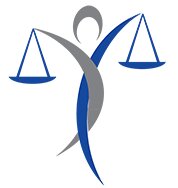Best Domestic Violence Lawyers in Trinidad and Tobago
Share your needs with us, get contacted by law firms.
Free. Takes 2 min.
Free Guide to Hiring a Family Lawyer
Or refine your search by selecting a city:
List of the best lawyers in Trinidad and Tobago
About Domestic Violence Law in Trinidad and Tobago
Domestic violence in Trinidad and Tobago is a significant social issue that affects individuals across all demographics. It encompasses various forms of abuse, including physical, emotional, psychological, and sexual maltreatment within a domestic context. The government has implemented legislation and various resources to protect victims and prosecute offenders. Understanding your legal rights and the protections available under the law is crucial for anyone affected by domestic violence.
Why You May Need a Lawyer
Legal assistance is often necessary in domestic violence cases to ensure your rights are protected and to help navigate the legal system effectively. Here are some common situations where legal help is essential:
- Filing a Protection Order: A lawyer can help you apply for an order that legally prevents the abuser from contacting or approaching you.
- Family Court Proceedings: If children are involved, legal advice can guide you through custody battles and ensure their safety and welfare.
- Criminal Charges: A lawyer can represent you if the abuser faces criminal charges, ensuring that justice is served.
- Divorce and Separation: Legal support can facilitate the fair division of assets and responsibilities, especially when abuse is a factor.
- Understanding Rights: Lawyers can provide insight into your rights and the best course of action under the law.
Local Laws Overview
The Domestic Violence Act is the primary legislation in Trinidad and Tobago addressing domestic violence issues. Here are some key aspects:
- Protection Orders: Victims can apply for various types of protection orders, including interim and final orders, which impose restrictions on the abuser.
- Police Involvement: The law mandates police intervention in domestic violence cases, where officers can arrest offenders without a warrant if necessary.
- Support for Victims: The legislation outlines provisions for supporting victims, including access to shelters and counseling services.
- Legal Recourse: Victims have the right to file complaints and seek legal recourse through the court system.
Frequently Asked Questions
What constitutes domestic violence under Trinidad and Tobago law?
Domestic violence includes physical, emotional, psychological, and sexual abuse within a domestic setting. It also covers threats or acts of violence that seek to control or harm another person in a domestic sphere.
Who can apply for a protection order?
Any person in a domestic relationship who experiences abuse can apply for a protection order. This includes spouses, cohabitants, family members, and individuals in dating relationships.
How do I apply for a protection order?
To apply for a protection order, you can approach the Family Court or a Magistrate’s Court where you'll receive guidance on completing the necessary paperwork and attending hearings.
What should I do if I am in immediate danger?
If you are in immediate danger, call the police at 999. They are required by law to respond to domestic violence calls and can provide immediate assistance and protection.
Can a protection order be modified or revoked?
Yes, a protection order can be modified or revoked. Either party may apply to the court for changes, presenting a case for why the order should be amended or lifted.
How long does a protection order last?
The duration of a protection order can vary. An interim order may be issued quickly to provide immediate protection, whereas a final order typically lasts up to three years, but can be extended.
What are the consequences if someone breaches a protection order?
Breaching a protection order is a criminal offence, and the violator can face fines, imprisonment, or both. The police can arrest an individual without a warrant for violating an order.
Can I drop the charges against the abuser?
Dropping charges depends on the nature of the charges. While you can request withdrawal in a civil matter, criminal charges are generally pursued by the state, which may decide to continue with prosecution regardless of your wishes.
Are there any support groups for domestic violence victims?
Yes, several support groups and shelters provide help, including counseling and emergency shelter services. The Coalition Against Domestic Violence and the Rape Crisis Society are notable organizations offering support.
Is legal aid available for domestic violence victims?
Legal aid is available for those who cannot afford a lawyer. The Legal Aid and Advisory Authority in Trinidad and Tobago offers assistance in domestic violence cases to qualifying individuals.
Additional Resources
There are several organizations and resources available in Trinidad and Tobago that can provide assistance and support to anyone affected by domestic violence:
- Police Service: Call 999 for immediate assistance.
- Family Court: Offers information and processing of protective measures.
- Coalition Against Domestic Violence: Provides resources and support for survivors of domestic violence.
- Rape Crisis Society: Offers counseling and support for victims of domestic and sexual abuse.
- Legal Aid and Advisory Authority: Offers legal assistance to those who qualify.
Next Steps
If you need legal assistance in a domestic violence case, consider the following steps:
- Seek Immediate Safety: If you are in danger, contact law enforcement and find a safe location.
- Contact a Lawyer: Reach out to a domestic violence lawyer who can provide legal advice and representation.
- Gather Evidence: Collect any evidence related to the abuse, such as medical reports, photographs, and communications with the abuser.
- Apply for a Protection Order: Work with your lawyer to apply for the necessary protection orders through the court.
- Utilize Support Services: Engage with local organizations for additional support and counseling.
- Attend All Court Hearings: Ensure you are present for any scheduled legal proceedings related to your case.
Lawzana helps you find the best lawyers and law firms in Trinidad and Tobago through a curated and pre-screened list of qualified legal professionals. Our platform offers rankings and detailed profiles of attorneys and law firms, allowing you to compare based on practice areas, including Domestic Violence, experience, and client feedback.
Each profile includes a description of the firm's areas of practice, client reviews, team members and partners, year of establishment, spoken languages, office locations, contact information, social media presence, and any published articles or resources. Most firms on our platform speak English and are experienced in both local and international legal matters.
Get a quote from top-rated law firms in Trinidad and Tobago — quickly, securely, and without unnecessary hassle.
Disclaimer:
The information provided on this page is for general informational purposes only and does not constitute legal advice. While we strive to ensure the accuracy and relevance of the content, legal information may change over time, and interpretations of the law can vary. You should always consult with a qualified legal professional for advice specific to your situation.
We disclaim all liability for actions taken or not taken based on the content of this page. If you believe any information is incorrect or outdated, please contact us, and we will review and update it where appropriate.
Browse domestic violence law firms by city in Trinidad and Tobago
Refine your search by selecting a city.














